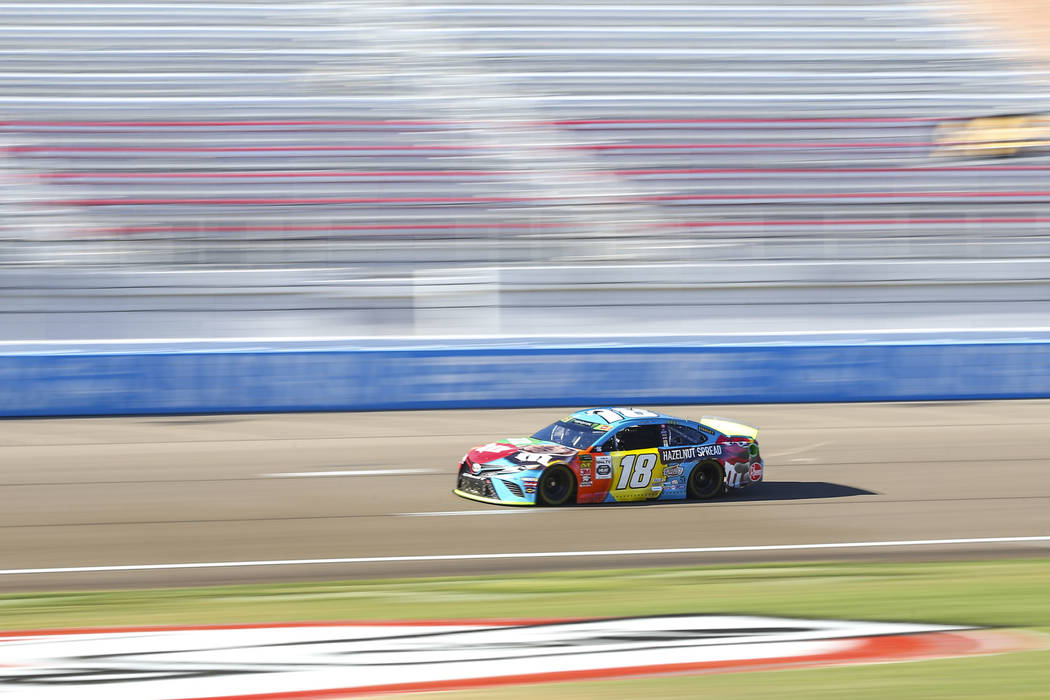Bonus points are insurance policy for top NASCAR contenders

When NASCAR announced a playoff system before the 2004 season, it did not go over well with a vocal segment of its fan base and many of its drivers.
But after a lot of tinkering, the rules makers might have succeeded in creating an acceptable balance between the 26-race regular season and the 10-race playoffs that begin with Sunday’s South Point 400 at Las Vegas Motor Speedway.
A radically revised points system that debuted in 2017 divided NASCAR races into three segments called stages, during which drivers accumulate bonus points that carry over to the playoffs. It made winning stages and races and earning a high finish in the regular season more important.
“I think it’s the most fair structure that we’ve had through the playoff era,” said 2019 regular-season champion Kyle Busch, who won four races and 10 stages and will start Sunday’s race with a 15-point edge on Joe Gibbs Racing teammate Denny Hamlin.
“It’s kind of an insurance policy,” said the Las Vegas native. “We’ve done a great job of being able to build those points up throughout the regular season, and it’s nice to have early season success help you through the postseason.”
The NASCAR playoffs consist of three three-race rounds and a championship race at Homestead-Miami Speedway in November. Four of the 16 championship-eligible drivers are eliminated after each three-race round. Points are reset after each round, with only the top four drivers racing for the cup in Florida.
For drivers with a lot of playoff points in the bank, it now takes two bad races in a three-race segment to jeopardize advancement instead of only one.
Building a buffer
“When you think about how our championship is won, it’s based on going out there in the regular season, building yourself a buffer through performance and getting to Homestead,” said Hamlin, who also won four regular-season races. “It’s all about a one-race shootout after that.”
If the idea was to produce a Game 7 showdown as in the so-called stick-and-ball sports, Martin Truex Jr. says playoff points remove a lot of whimsy from the equation.
But not all of it.
Last year, Busch, Truex Jr. and Kevin Harvick dominated the regular season and advanced as expected to the championship race. But upstart Joey Logano crashed the final four with a late playoff victory at Martinsville, Virginia, and then won the title.
“We got knocked out by one or two points in 2016 before (bonus points) started,” said Truex Jr., the third member of the vaunted JGR stable who was a four-race winner during the regular season. “So we’ve seen the benefit and what it’s like not to have ‘em.”
But what bonus points bring to the dominant drivers and teams, they take away from the lower seeds trying to mount a Cinderella charge.
In 2014, Ryan Newman sneaked into the playoffs during the last regular-season race and then nearly won the championship before settling for second place behind Harvick. Newman needed a strong drive at Indianapolis last week to barely qualify again as the 16th playoff seed.
“With the points advantages that some teams have, it’s harder to overcome some of that stuff now than it was back then,” he said about a long shot’s chances getting even longer.
Contact Ron Kantowski at rkantowski@reviewjournal.com or 702-383-0352. Follow @ronkantowski on Twitter.